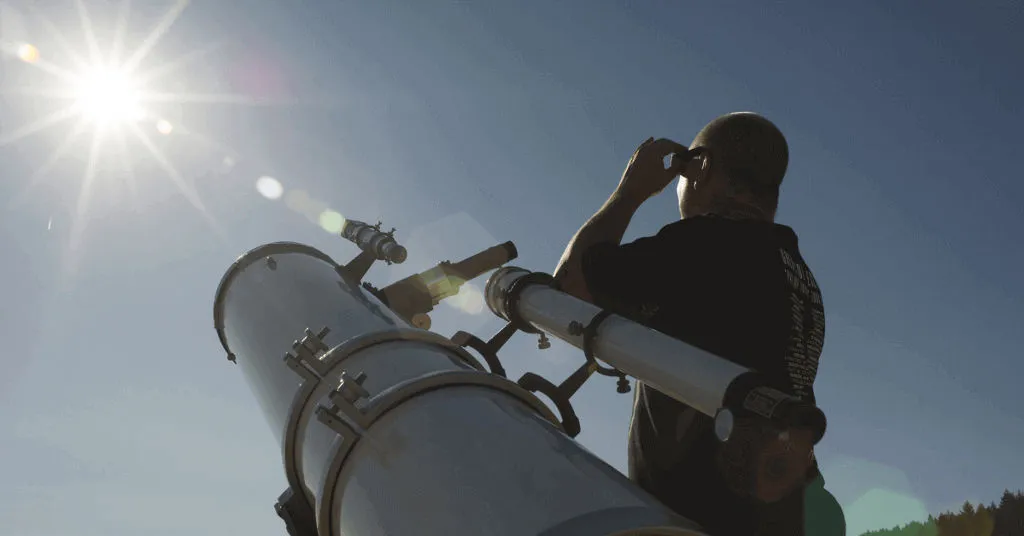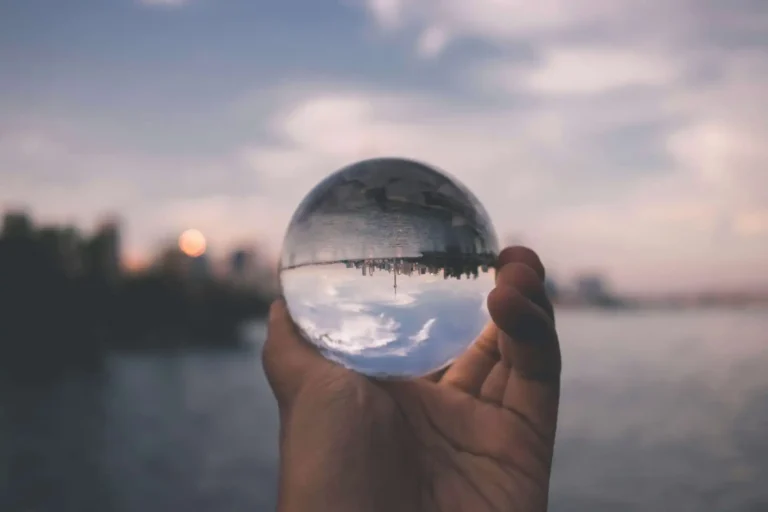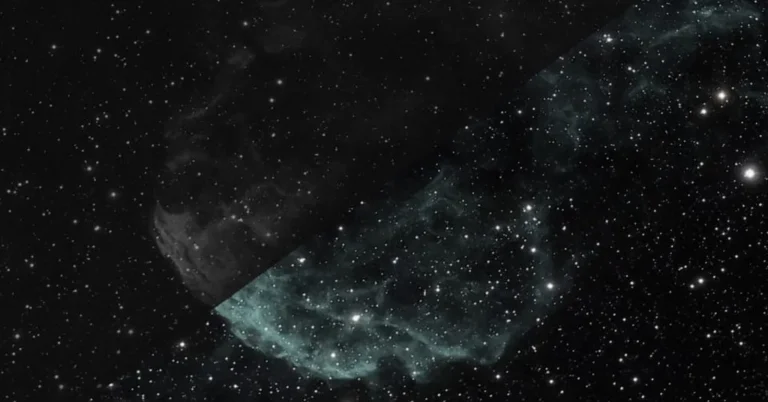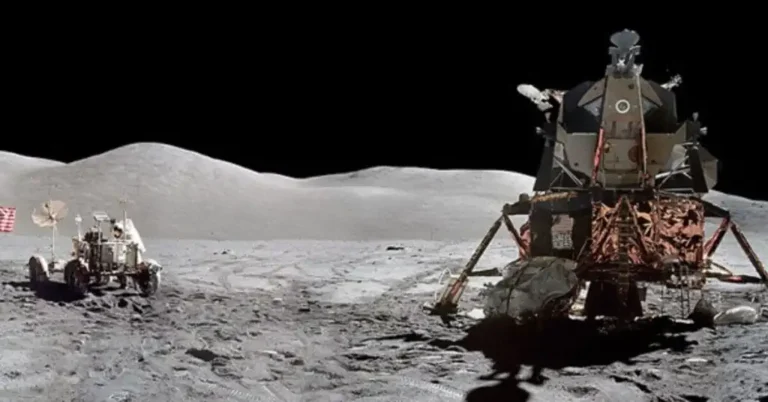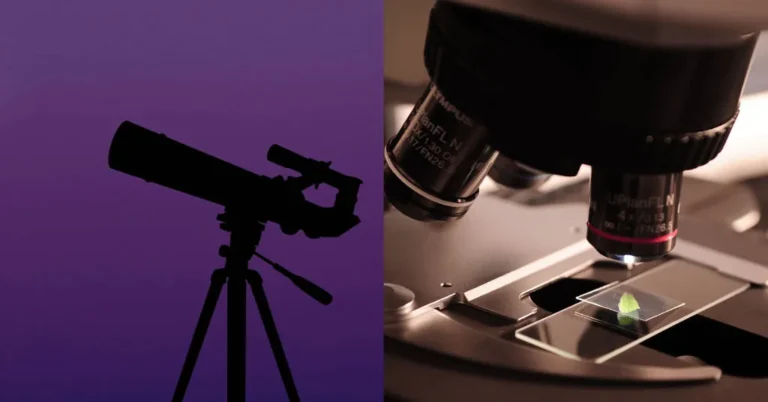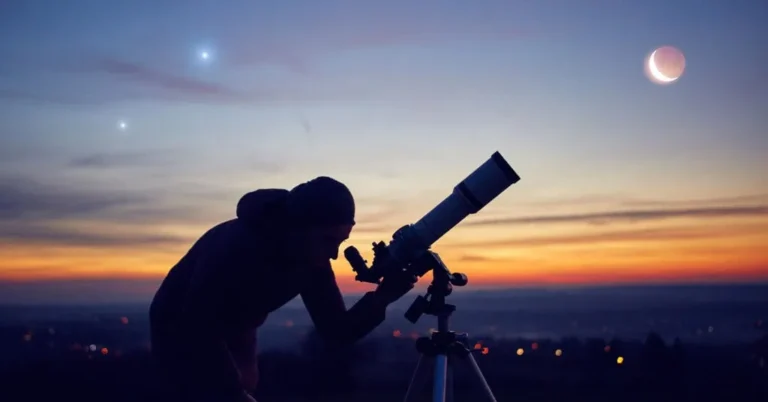Stargazing Safely – Can Telescope Damage Your Eyes
Stargazing is a pastime and a passion shared by countless skywatchers across the globe. Those transcendent moments spent peering into the infinite expanse can be humbling and thrilling. But while capturing the dance of celestial bodies, an unseen danger lurks—one that threatens our most precious optical instrument, the human eye. This blog post isn’t just about the stars; it’s about safeguarding your vision while you reach for them. In the next few scrolls, we’ll unveil practical advice reframing your experience from hazardous to awe-inspiring.
The Unseen Threat: How Telescopes Can Harm Your Eyes
The complexity of the eye’s anatomy enthralls scientists, with its numerous cells and photoreceptor cones working harmoniously to translate light into vision. You disturb this intricate balance when you stare at the sky through a telescope.
Telescopes gather copious quantities of light, concentrating them to a singular point. And while a telescope can take the ghost of a star and make it blaze brilliantly, it can also do the same with sunlight—an act akin to setting a magnifying glass to parchment, albeit one you can’t feel until it’s too late.
Intensifying the Risk
All forms of radiation, from the visible light spectrum to the ultraviolet and infrared regions, are potential assailants to ocular well-being. The lenses and mirrors within a telescope, the equipment that allows us to glimpse at distant events millions of light-years away, have the unintended ability to focus this electromagnetic radiation with intensity capable of burning the retina.
The Solar Stare-Down
Knowing what the combined might of lens and radiation can accomplish, the most critical rule of telescopic observing becomes absolute—never point the instrument at the sun without a proper solar filter. This is not mere caution but the defense of lasting ocular health. A momentary lapse in judgment, such as following the path of an eclipse without a filter, can lead to permanent retinal damage or outright loss of vision.
Stargazing Safety: Essential Tips for Protecting Your Eyes
The night sky stretches above us like a cosmic canvas, inviting us to look upon the universe’s wonders. But as we peer into the void, we must do so with knowledge and respect for our eyes’ fragility.
The No-Direct-Sunlight Rule
First and foremost, engrave this into your stargazing mind—never, under any circumstances, point an unprotected telescope at the sun. The risks are not myths but medical realities. Instead, bide your time, purchase a solar filter specifically crafted for telescopic use, and schedule your safe solar observations.
The Filtered Gaze
When it comes to the sun, only the finest filters will do. Solar telescope filters are designed to block most of the sun’s radiation, permitting observation without peril. Use them religiously; the silent sentinels protect your eyes from the harshest celestial spotlight.
Limiting Bright Object Observation
Not every astronomical body is as gentle on the eyes as the moon. Venus, for one, shines so righteously that it can lead to discomfort and damage if observed through an unfiltered telescope for too long. Adhere to your telescope’s limits; if in doubt, a filter is the route to unblinking safety.
Second-Hand, Second-Thoughts
Be astute with your gear. An inherited or thrifted telescope might have an unwanted history of misaligned filters or lenses. Ensure that your optical instrument is pristine, and always verify protective mechanisms before peering through the looking glass.
Beyond Safety: Additional Tips for Enjoying Your Telescope
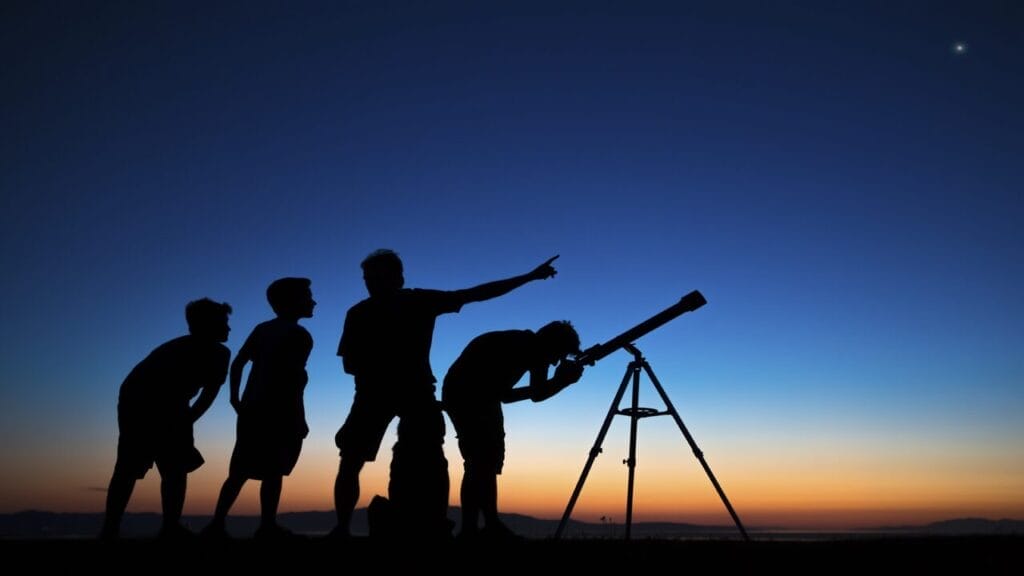
Safety is the sentinel, but enjoyment is the endgame. With these additional tips, you’ll be safeguarded and better equipped to relish the rich rewards of telescope stargazing.
Find Your Cosmic Companion
Choosing the right telescope is more than a question of function; it’s about finding one that aligns with your safety-minded stargazing goals. Research, inquire, and consult with experts to secure an instrument that not only brings the stars closer but does so to protect your vision.
Follow the Etiquette of the Stars
When stargazing, you may find yourself not the sole observer. Fellow astronomers and their setups dot the landscape of shared observation sites. Respect their telescopes and personal spaces, refrain from unauthorized star-shares, and never interfere with a fellow enthusiast’s field of view.
Dim Your Defiance of Darkness
Urban lights glow like tawdry baubles in the stargazing firmament, polluting the night sky and diminishing the wonders within. Seek out dark sky locations where the stars are unveiled in all their splendor, and the potential for precise, unfiltered observations is at its zenith.
Conclusion
Your eyes are the window to the universe you so fervently explore. Like any venture into the beyond, preparation, and knowledge are your guiding stars. When you sit down with your telescope, think not just of the sweeping cosmos awaiting your gaze but of the tiny optics so perilously close to it, depending on your caution to stand between them and harm.
Now that you know both risk and remedy, the night’s symphony is yours to enjoy, study, and share. But it begins with that simple, critical rule that should echo as the backdrop to every stargazing excursion:
Can your telescope damage your eyes? In a word, yes. But with reasonable use, careful observation, and a mind attuned to the perils and pleasures overhead, the potential harm becomes as distant as the stars themselves.
FAQs
Can I use regular sunglasses when looking at the sun through a telescope?
Absolutely not. Regular sunglasses, even the darkest ones, do not offer adequate protection against the intense light of the sun seen through a telescope. The lenses in solar glasses are specially designed for this purpose.
What if my telescope doesn’t have a solar filter?
If your telescope does not have a solar filter, you can purchase one that fits your telescope’s size and specifications. These filters are designed to be used with specific telescopes, so make sure you buy the correct one that is both functional and safe.
Are there any physical signs that I have looked at the sun through a telescope for too long?
Signs that you may have experienced damage from looking at the sun through a telescope include discomfort, a sudden appearance of spots in your vision (which may be temporary or permanent), or reduced visual acuity. If you notice any of these symptoms, it’s crucial to seek medical attention immediately.
Can I make a DIY solar filter at home for my telescope?
It’s strongly discouraged. Homemade filters may not block harmful solar radiation effectively. Only use certified solar filters tested for safe solar observation.
Is it safe to use a telescope for solar viewing during sunrise or sunset?
No, it’s still unsafe without a proper solar filter. The sun’s light may look weaker, but it can still cause permanent eye damage through a telescope.

